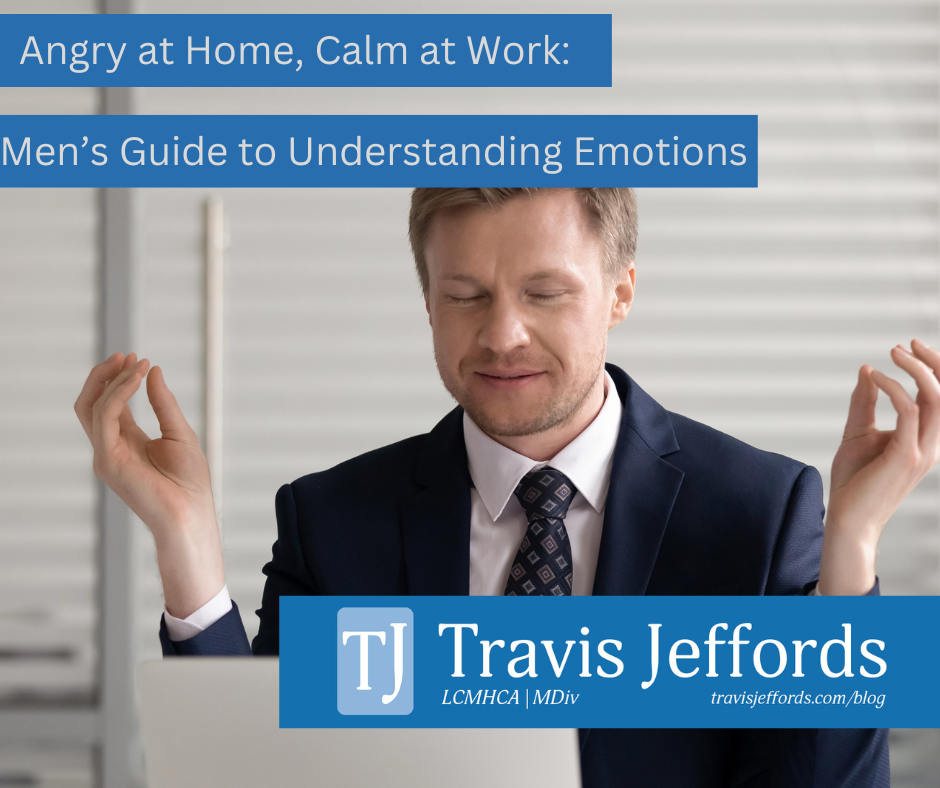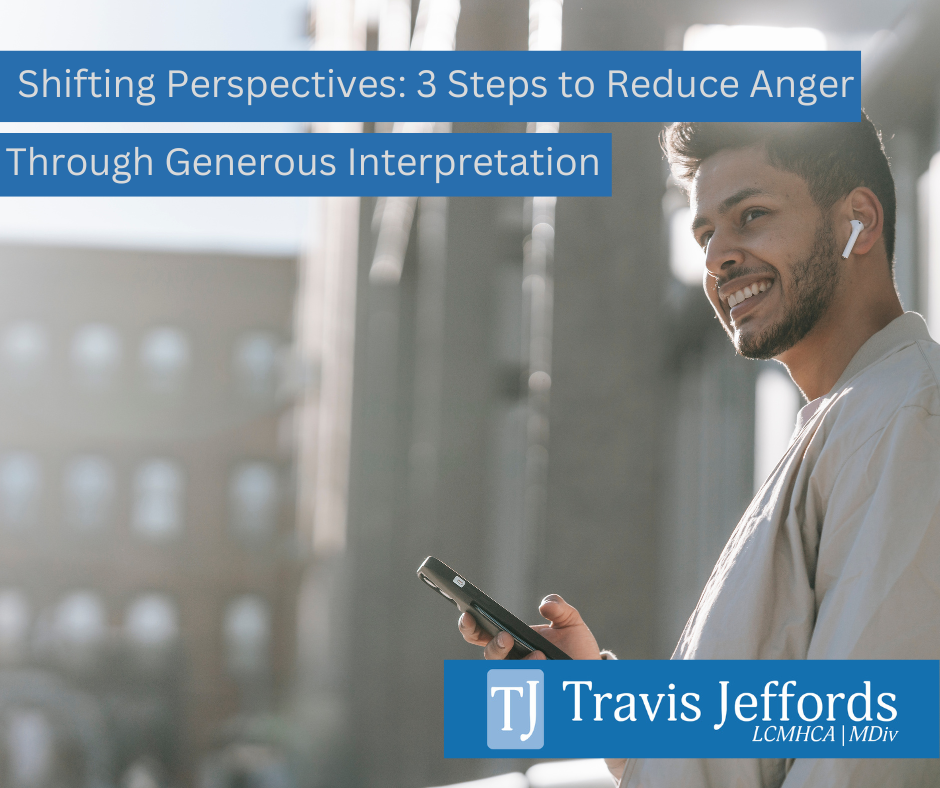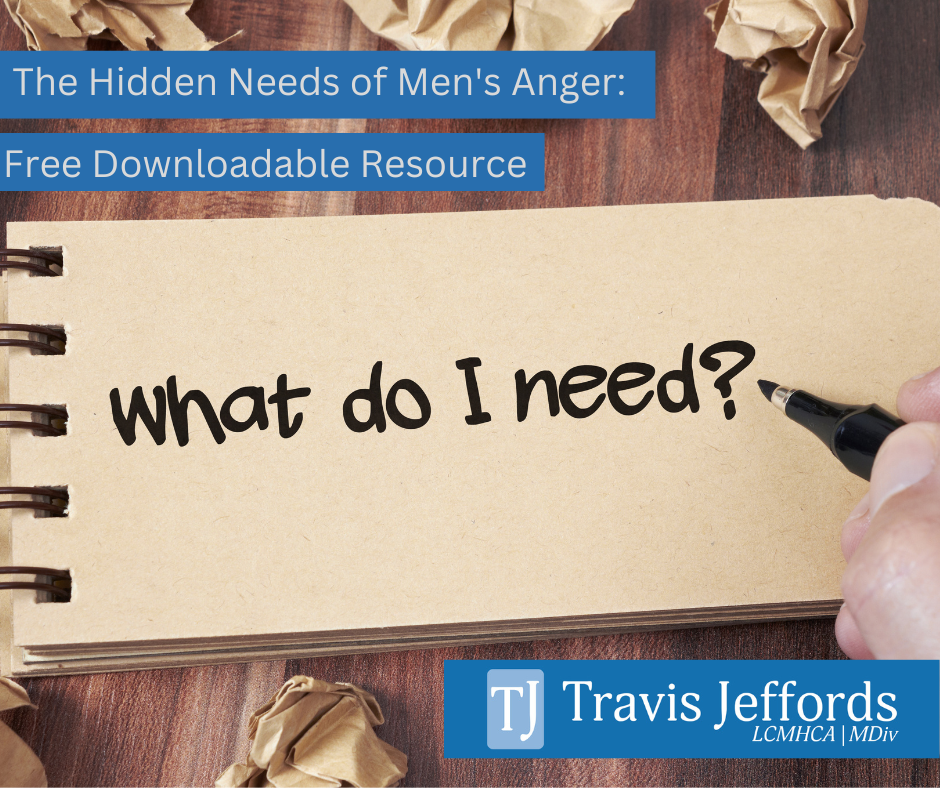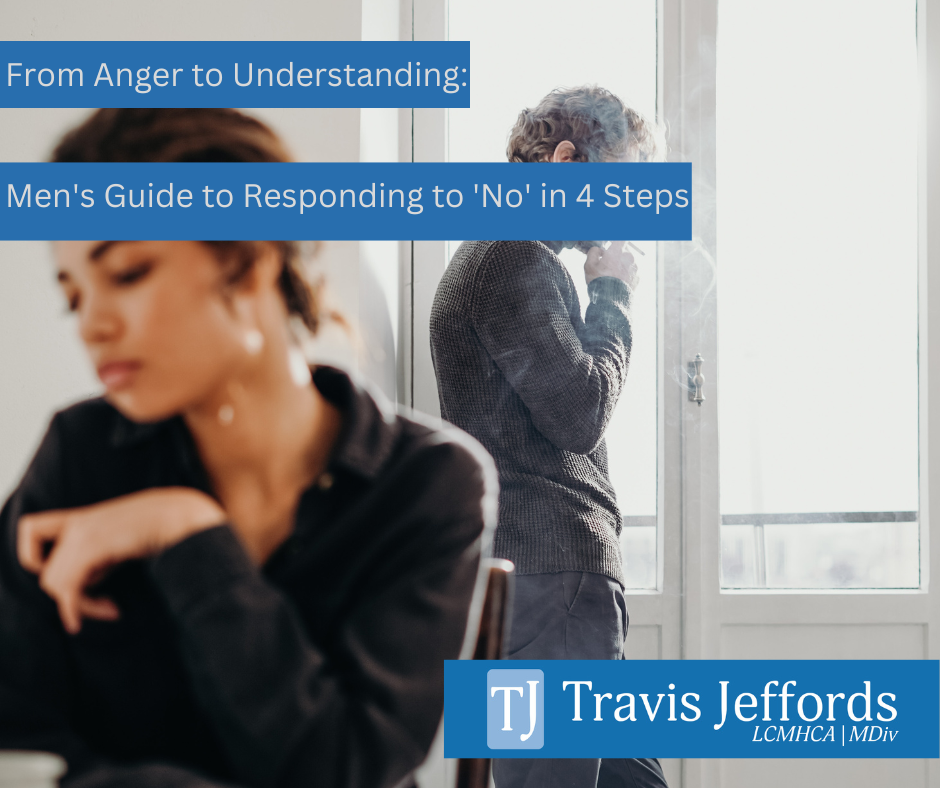Your Anger is a Friend
A few years ago our family adopted our first family dog - a black 10-yr old Lhasa Apso mix named Bentley.
He was the perfect dog for our family - and particularly gentle and nonreactive with our young daughter. But we noticed within the first few days that he was frequently sneezing! After a few weeks of this we took him to the vet, thinking perhaps he was allergic to something.
You can imagine our surprise however, when we found out that he wasn’t sneezing because he was allergic to something, but was in fact “fake sneezing” as a way of trying to get our attention and let us know that he was ready to go outside to relieve himself.
Because we didn’t know what he was trying to tell us, we struggled to know how to respond appropriately.
Our Anger is similar:
When we don’t know what our Anger is trying to tell us, we struggle to respond appropriately.
However, most of us were never taught that our Anger was trying to tell us something. Maybe you were taught some of the following your Anger:
Your Anger is bad.
Your Anger is a problem.
Your Anger is something you’re not “supposed” to feel.
Your Anger is something you need to control, push down, over-power, or get rid of.
Your Anger is a sign of your own lack of spiritual maturity.
Here’s what I believe instead about emotions and Anger instead:
There are no bad emotions, and that includes Anger.
All emotions have an appropriate place within us.
Your Anger is trying to communicate something helpful, if we are able to listen.
We may tell ourselves that our anger is bad and needs to disappear altogether, but it doesn’t really work. Sometimes we may be able to over-power our Anger with another part of ourselves (like a hyper critical part)...but eventually that Anger part will come rushing to the surface, but with much more intensity.
Check out this video of a guy jumping into a lake holding a ball:
He tries to carry the ball under the water with him, but eventually the pressure is too much - and the ball goes flying into the air.
The ball is a lot like our Anger. If we try to convince ourselves/others that we’re not angry…there’s nothing wrong…everything’s okay…etc., for long enough, the pressure builds and the ball (our Anger) goes flying.
So - what should you do instead of stuffing your anger down and waiting until it explodes sideways?
When we get closer to our Anger instead of pushing it away, our Anger will share with us how it’s actually trying to help.
I completely understand if you’re skeptical that Anger has anything positive to teach us or show us or is trying to help us in any way. I felt that way for a long time. But let me share with you three possible things our Anger can be trying to help:
3 Ways Our Anger Tries to Help
Anger can show you when your boundaries have been crossed.
Sometimes we can have a tendency to pretend that we are okay with things, when, in fact, we really are not:
When your parents or in-laws showed up unannounced at your house and expected to stay with you without even asking.
When someone gave you the wrong end of a deal financially and you felt taken advantage of.
When you told someone ‘no’, but they did not listen.
In each of those instances, your Anger is letting you know that deep down you are not okay with this situation.
2. Anger can reveal your human needs that are not being met.
We all have basic human needs and desires. Sometimes however, our culture or family may have given us the message that it was not okay to have needs. Over time, we learn to be accepted we have to pretend that those basic human needs are not there. We may fool ourselves for a while, but our Anger can actually exist to help show us - “Hey, something is off here…there’s something you’re needing at this moment”.
Having needs doesn’t mean you’re selfish…it just means you’re human.
Here’s a very partial list of core human needs that we all have:
Acceptance
Community
Stability
To Be Seen and Known
Purpose
Self-Expression
Authenticity
(For an extensive list of our core human needs, here’s a free download I share with clients)
Again, when Anger shows up, it can be trying to alert you to the fact that one of your needs are not being met. This is priceless information to have about ourselves. When you gain the ability to sit with your Anger and listen to it tell you, “You have a deep desire to be accepted as you are, and right now that need is not being met”, then you can take intentional steps to address that need.
It may look like naming that need in appropriate ways with the person who is not accepting you, finding other people who can accept you, or finding ways you can address that need internally within yourself.
No matter what form it takes, listening to the wisdom your Anger wants to share with you is the first step towards growth.
3. Anger can show the way to your past wounds that long for healing.
Another quick story about my dog, Bentley. Lhasa Apso’s were actually raised to be guard dogs in palaces in Tibet, and so, naturally, Bentley loves to lay in near the doorway of our bedroom near our bed and our oldest daughter's bedroom. He’s protecting her. If he senses there’s any danger about to hurt our daughter, he’s going to bark his head off.
Our Anger can act the same way.
We all carry our own hurt children inside of us - times earlier in life where our boundaries were crossed or needs weren’t met. We were not old enough then or unable at the time to stop those boundary crossings or get our needs met. Our Anger can turn into a guard dog watching at the door - anytime our Anger senses those wounded inner children are at risk of being hurt again, the guard dog springs into action to protect it.
Once you become aware of this incredibly important and protective role your Anger is playing, you can actually work - with a therapists help - to heal that inner child. When that happens, the Anger no longer feels the need to guard the palace with the same intensity, and will actually feel comfortable relaxing (something that it may have not done for years).
Conclusion
A few years ago, during a trip to my parents, I was cooking dinner and needed to open a can. I found this high end fancy can opener in a drawer - and - couldn’t figure out for the life of me how to work it! I was twisting knobs and trying to hook the can on…nothing was happening.
My mom came over and effortlessly clicked the can opener in place, and it worked like a charm.
For so many of us our Anger is the same way. We get fed up and frustrated with it, because it feels like a gadget that just doesn’t work! But the truth is, every emotion has its place within us, and anger is no exception. When we how to listen to what our Anger is trying to show us - it can be like learning how to work that can opener…it all clicks into place.
Wishing you the best on your mental health journey.
Hi, I’m Travis.
My clients describe me as calm, compassionate, and curious…
You have these qualities inside you at your core too. You just need a little help uncovering them.
If you’re dominated by anger, anxiety, shame, or self-criticism, we can help you re-connect with who you really are: confident, calm, courageous, compassionate, and connected to yourself and others.
Travis Jeffords - LCMHCA | MDiv. | Male Counselor
In-person counselor: Greensboro & Winston-Salem
Virtual counselor: North Carolina
Licensed Counselor
Please note: The information provided in this blog is for general informational purposes only and is not a substitute for professional counseling or therapy. The content presented here is based on my professional knowledge, personal experiences and research, but it should not be considered as a replacement for individualized mental health advice.
Every individual is unique, and the content provided may not be applicable to everyone's specific circumstances. It is important to consult with a licensed mental health professional regarding your specific concerns and to receive personalized guidance tailored to your needs.















